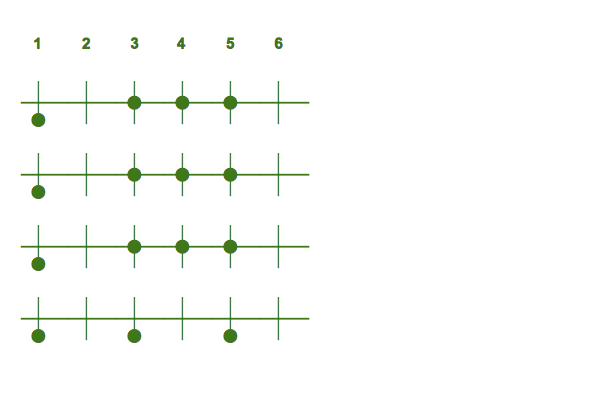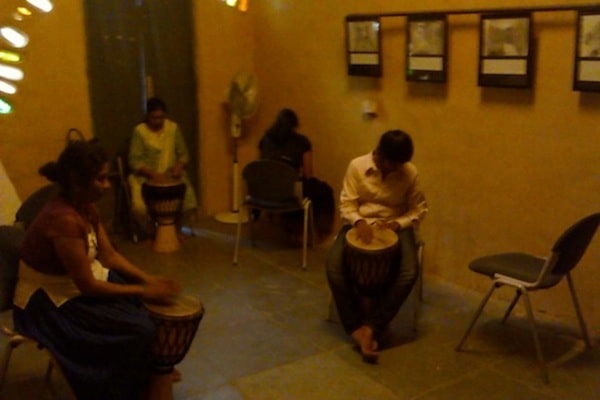Play your own Rhythm
Why we all need to learn to listen?

That’s my rhythm. Up there in the photo is the tablature of my rhythm. If you wake me up at 0300 (in the night) and ask me to pick up my djembe and play something — this is the rhythm I will play. This is what I call my base rhythm. I may play a variation over and above this, but this is what I will keep coming back to.
Now, I am not a great djembe player. I am a beginner. But even my friend Ashok, who is an accomplished djembe player and has his own fusion music band, has something like this. He calls his base rhythm — the elephant.
I believe we all have a base rhythm — in music, in work, in play and in life. The challenge is to discover this base rhythm.
It should not be hard. I have seen it in our workshops at Utsmaya. Participants would be picking up the djembe for the very first time in their lives. They would be shown just the bare minimum three ways to hit the djembe — the bass, the tone and the slap. And then left alone to explore.
And I am always amazed at what they come back and share with the group. An amazing new rhythm, which appears to flowing effortlessly through them and pouring out into the room.

Listening to your own rhythm
But it is also hard. In every day life, outside of a workshop session, it is very hard to find your own rhythm. I have a strong hypothesis on why that is the case. I believe it is because we have forgotten how to listen.
In the workshop session, where we don’t have any prior experience or knowledge about the musical instrument, we are very open and listening to what is emerging from within us. And hence we have a real chance to hear what’s inside us and then be able to play it and share it. And it is an amazing feeling.
Outside of the workshop session, our prior knowledge and past experiences prevent us from listening to our own voice. It just drowns it out and we are left with what I would call just second-hand existence. We believe in it strongly because it is coming from us, but it is not really ours. It is just an echo of all that we have heard from outside of us.
Many centuries ago, we used to be hunter and gatherer. Even now, we are hunter and gatherer but of a different kind. We hunger for knowledge instead of food. But we forget the real trick we need to use with knowledge. Alan Kay said it beautifully — it is ‘to forget all except the perfume’. Coz when we do that, there is a small chance, that we will be able to hear our own inner voice.
I think the trick with knowledge is to “acquire it, and forget all except the perfume” — because it is noisy and sometimes drowns out one’s own “brain voices”. The perfume part is important because it will help find the knowledge again to help get to the destinations the inner urges pick. — Alan Kay’s advice to Bret Victor
We all need to find our own ways to re-learn how to listen to our inner voices. It could be through meditation, mindfulness, minimalism, writing, nature, crafting, playing or something else — choose the tool that works for you. But work we should at listening, because only then we may be able to play our own rhythm.